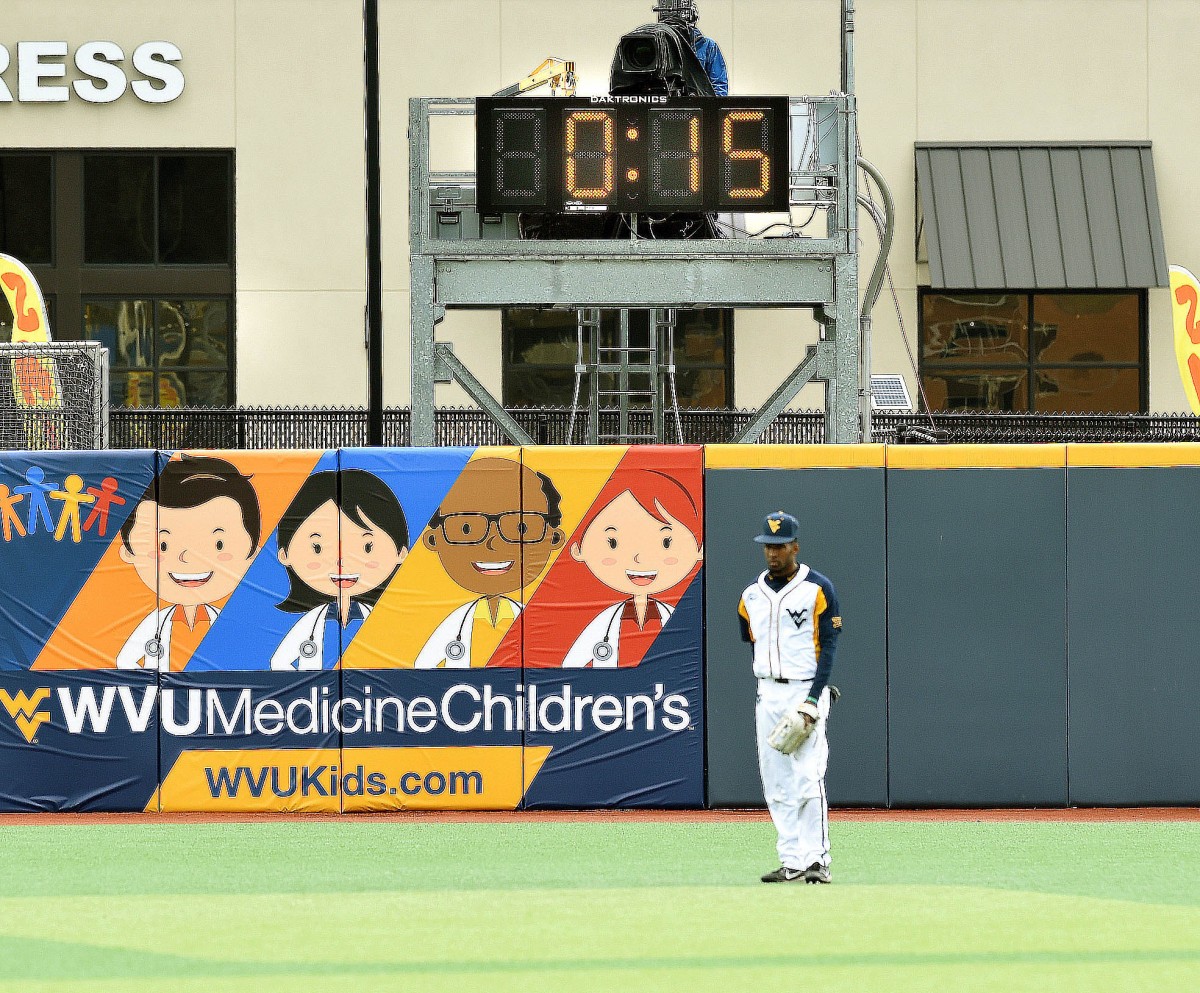MORGANTOWN — The WVU men’s baseball team is on the clock.
Literally.
That is not a commentary on how crucial a weekend series against Oklahoma State (18-12-1, 7-2 Big 12) that begins at 6:30 p.m. April 13, at Monongalia County Ballpark, is for the postseason future of the Mountaineers (15-15, 1-5).
Although it very well could be.
“They’re the hottest team in the league, coming off two sweeps,” WVU head coach Randy Mazey said of the Cowboys. “They swept TCU, which no one ever does.
“We’re 1-5 in the league right now, and that’s not going to get you anywhere. We need to have a good weekend if we’re going to make a run at this thing. We can’t finish too low in the bottom half of the league and expect to play in the postseason.”
More figuratively, WVU and Oklahoma State pitchers will be on the 15-second pitch clock, a rule change adopted by the Big 12 this season to use in conference games.
The clock is only in use if the bases are empty. A batter must be set in the box before the clock reaches five seconds remaining, or he is charged with a strike in the count.
If a pitcher does not release a pitch in 15 seconds, a ball is added to the hitter’s count.
The clock was adopted by Minor League Baseball, but not yet by Major League Baseball.
A 90-second clock will also be in play between innings, allowing teams and pitchers that much time to warm up before play begins again.
If the offensive or defensive team is ruled not ready to play, a ball or strike could be awarded to the first batter’s count.
The clocks — one will be stationed behind the left-center field fence and one on the press box — were instituted to help improve pace of play.
WVU was introduced to the clocks in road series against Texas Tech and Oklahoma this season. This will be the first time the clocks will be enforced at Monongalia County Ballpark.
“I don’t really see them, so I don’t even think about it too much,” said WVU pitcher Braden Zarbnisky, who pitched on the clock against Texas Tech. “We were all told about them at the start of the season, but I’ve always worked pretty fast, so it doesn’t bother me too much.”
Think it’s easy to throw a pitch and then another in 15 seconds or less?
Consider:
The clock begins once the pitcher receives the ball back from the catcher. In WVU’s situation, the Mountaineers’ catcher will then get a pitching sign from WVU pitching coach Dave Serrano.
“Once we knew the clock was coming, we began to emphasize our timing in our intra-squad [scrimmages],” WVU catcher Chase Illig said. “Coach Serrano definitely emphasized getting the signals out quick. He stays locked in on the game. He does a great job of getting the next pitch to me.”
It’s then up to the catcher to relay the sign to the pitcher. Generally, there are still 3-6 seconds remaining when the WVU pitcher releases his next pitch. That is, as long as the pitcher agrees with the signal. If the pitcher shakes it off …
“Then it gets a little crazy and it’s happened a couple of times,” Illig said. “Then, you have to make quick on-the-fly adjustments. In my head, I think about what this guy likes to throw and go with that.”
There are debates on whether the clocks make much of a difference in how quickly a game is played.
Color WVU head coach Randy Mazey as unimpressed with the rule changes.
“It doesn’t change anything that we do, because we play pretty quick anyhow,” Mazey said. “It’s not the players who slow the game down, it’s the coaches. The pitch clock is more for the coaches than it is the kids.
“I hope it’s never a factor in a game. If it is, that’s not baseball. I’ve never heard of a walk-off pitch-clock victory. I hope I never see one.”
Game 2 of the series is scheduled for 4 p.m. Saturday, with the final game scheduled for 1 p.m. Sunday.




